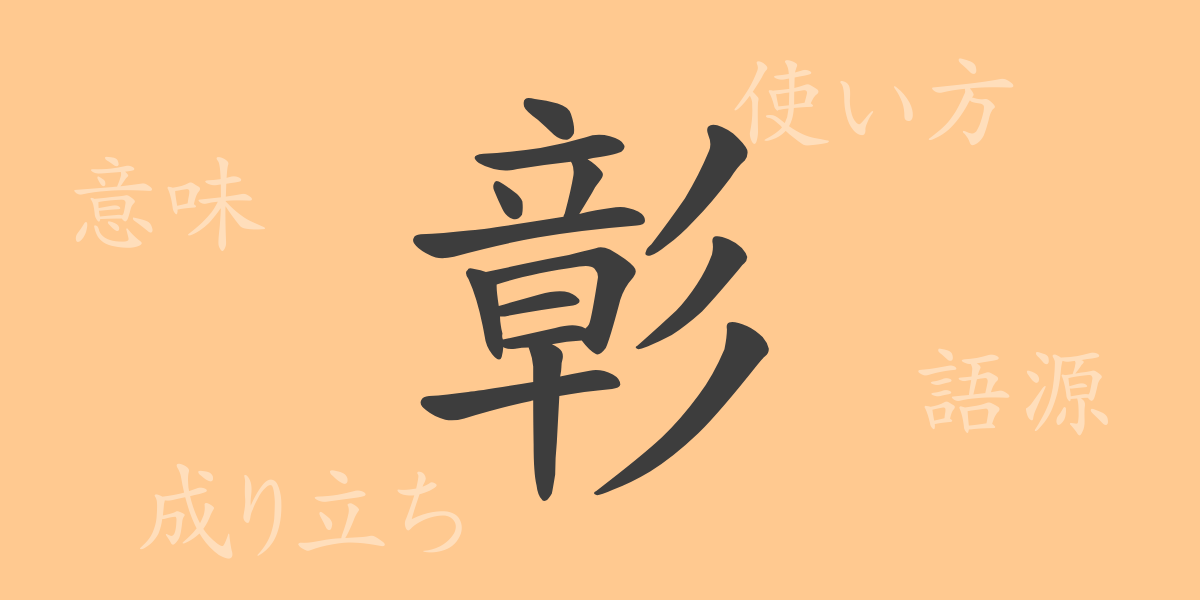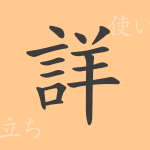The Japanese script, with each Kanji bearing its own unique history and meaning, profoundly reflects the culture. The Kanji “彰(ショウ)” is no exception, frequently encountered in daily life yet often little understood in depth. This article delves into the full spectrum of “彰,” exploring its origins, meanings, applications, and how it is used in idioms and proverbs, inviting us on a journey to rediscover the richness of the Japanese language.
Origins of 彰(ショウ)
The Kanji “彰” has been used since ancient times in China, originating from the character “章,” which was used in ancient seals and signified clarity in demonstration. “彰” incorporates “彡(さんづくり),” symbolizing rays of light, suggesting the act of illuminating or celebrating clarity. This addition implies a stronger emphasis on showcasing or highlighting qualities.
Meaning and Usage of 彰(ショウ)
“彰” primarily means “to clarify” or “to highlight.” It is used to denote the act of making something clear or emphasizing distinctive features. It also conveys the notion of making someone’s virtues or achievements widely recognized. Commonly, it appears in phrases such as “称え彰す” (to extol and celebrate) and “功績を彰する” (to highlight one’s achievements).
Readings, Stroke Count, and Radical of 彰(ショウ)
Basic information about “彰” is as follows:
- Readings: The On’yomi (音読み) is “ショウ.” There are no Kun’yomi (訓読み).
- Stroke Count: “彰” consists of 14 strokes.
- Radical: The radical is “彡(さんづくり)” which indicates a bristling or radiance effect, enhancing the meaning of the character.
Phrases, Idioms, and Proverbs Using 彰(ショウ) and Their Meanings
“彰” is incorporated into many phrases and idioms that enrich its meaning:
- 功績を彰する – To widely proclaim someone’s achievements.
- 名を彰す – To spread one’s fame or reputation.
- 彰明 – Being clear and evident.
- 彰考 – To clarify and contemplate historical facts.
Conclusion on 彰(ショウ)
The Kanji “彰” conveys strong meanings of illumination and clarification, as evident from its structure. As a common Kanji, it plays a crucial role in lauding human virtues or clarifying historical truths across various contexts. Understanding the deep meanings embedded in characters like “彰” enriches one’s appreciation of the Japanese language, offering insights into the culture and history underlying the words we use.

























